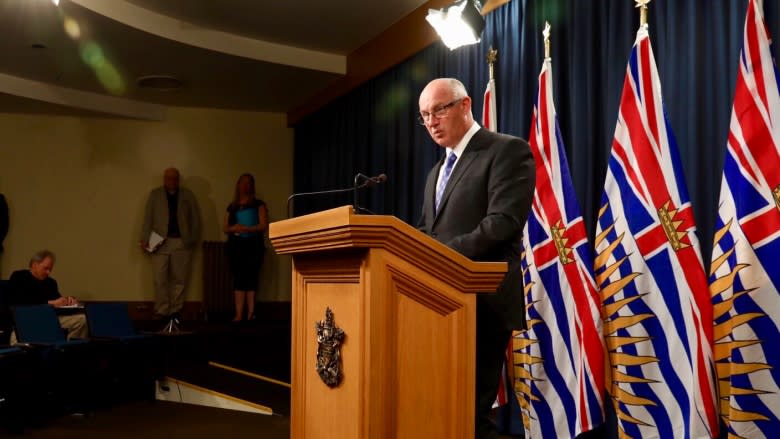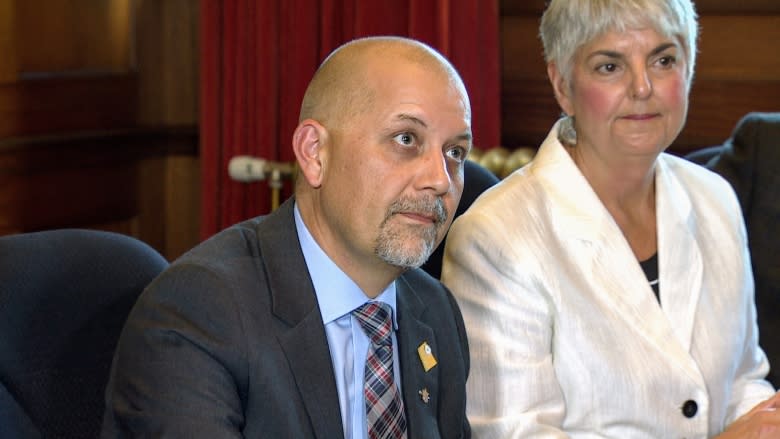B.C. releases recreational pot rules — but prices and timelines still hazy
The B.C. government has tabled new legislation to deal with the legalization of recreational marijuana expected sometime this summer.
B.C. Solicitor General Mike Farnworth released details this morning on two new government acts that will control the sale and use of recreational pot in B.C., plus amendments to the Motor Vehicle Act to crack down on drivers under the influence of marijuana.
It remains unclear when marijuana will be legalized by the federal government, he noted.
"Clearly it is not going to be July 1," said Farnworth.
The price of recreational pot has yet to be set by the province, he added.
"The pricing is still being worked on with the Ministry of Finance," he said, noting that it needs to be low enough to keep organized crime from attempting to undercut the legal market.
The acts will be amended as necessary, said Farnworth, pointing out that marijuana edibles are not expected to be legalized by the federal government until next year.
Also Thursday, the B.C. Liquor Distribution Branch announced that its retail stores will open this summer under the name B.C. Cannabis Stores, including the province's only legal online retail outlet.
Retail stores will only be permitted to sell a maximum of 30 grams of dried cannabis or its equivalent in oil to an individual at one time.
Acts establish government control
The Cannabis Control and Licensing Act will:
- Set 19 as the provincial minimum age to purchase sell or consume cannabis.
- Allow adults to possess up to 30 grams of cannabis in a public place.
- Prohibit cannabis smoking and vaping in every place where tobacco smoking and vaping are prohibited, as well as at playgrounds, sports fields, skate parks and other places where children commonly gather.
- Prohibit the use of cannabis on school properties and in vehicles.
- Authorize adults to grow up to four cannabis plants per household. However, the plants must not be visible from public spaces off the property, and home cultivation will be banned in homes used as daycares.
- Establish a cannabis retail licensing regime similar to the current licensing regime for liquor.
- Provide enforcement authority to deal with illegal sales.
- Create a number of provincial cannabis offences which can result in fines ranging from $2,000 to $100,000, imprisonment of three to 12 months, or both.
- Where necessary, to comply with charter rights and human rights law, provide exemptions to individuals who are federally authorized to purchase, possess and consume medical cannabis.
The Cannabis Distribution Act will put wholesale distribution under the control of the Liquor Distribution Branch and establish government-run retail stores and online sales.
Motor Vehicle Act amendments will give police more tools to remove drug-affected drivers from the road and deter drug-affected driving, including:
- A new 90-day Administrative Driving Prohibition for any driver who police reasonably believe operated a motor vehicle while affected by a drug or by a combination of a drug and alcohol, based on analysis of a bodily substance or an evaluation by a specially trained police drug recognition expert.
- A zero-tolerance restriction for the presence of THC (the active ingredient in cannabis) in new drivers in the Graduated Licensing Program.
The Residential Tenancy Act and Manufactured Home Park Tenancy Act will also be amended to prohibit cannabis smoking when existing leases prohibit smoking tobacco, and prohibit the personal cultivation of cannabis under existing leases, except for federally authorized medical cannabis.
Legislation backed by Green Party
The legislation will now be debated in the legislature before it is passed into law. Just when that happens will depend on when the proposed federal legislation receives royal assent.
The B.C. Green Party released a statement saying it supports the legislation but remains concerned about how the legalization could affect the price of agricultural land.
Green Party MLA Adam Olsen said he had heard concerns from "adjacent industries" that "legalisation could have adverse effects such as driving up the prices of ALR land due to speculation."


